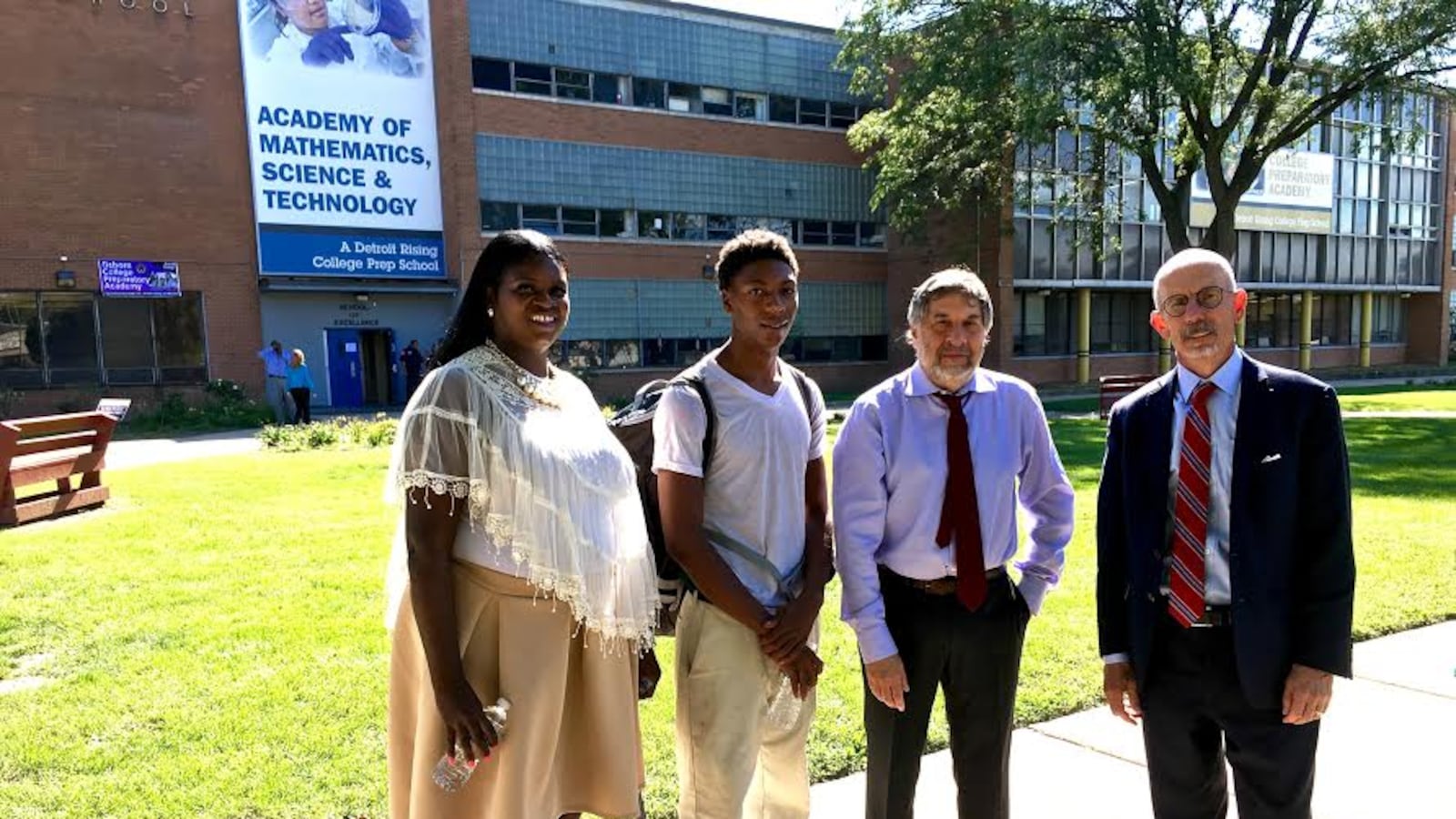The advocates who insist that poor conditions in Detroit schools amounted to a violation of students’ civil rights are finding hope in a similar lawsuit in California.
The Golden State agreed to pay $50 million to some of its most troubled schools, recognizing that a lack of funding had effectively robbed thousands of children there of an education.
Mark Rosenbaum, director of the pro bono firm that filed the California suits, said the settlement there bodes well for a payout in Detroit.
“It was essentially the same argument, which is that literacy is the cornerstone of education, and education is the cornerstone of democracy,” he said.
Far too many students in Detroit — and across Michigan — struggle to read. Statewide, just 44% of students passed the state English exam last year.
The Detroit lawsuit alleges that a lack of resources in Detroit schools — and the horrifying conditions that resulted — deprived students of an education and violated their civil rights. The case is being appealed after that argument was rejected by a federal judge in Michigan’s eastern district court. If the lawsuit is successful, it could result in sweeping changes to Michigan’s education system.
“I’m very encouraged,” said Helen Moore, an activist who boarded a bus at 3 a.m. in October along with other Detroiters to hear arguments in the Detroit case in a Cincinnati courthouse. “I think we have a real shot at winning this thing. It’s going to affect the whole United States.”
The office of Michigan’s Attorney General, the defendant in the case, didn’t return a request for comment.
With a decision from the 6th Circuit Court of Appeals in Cincinnati expected in coming weeks, Detroiters are keeping a close eye on the case, which has the potential to upend Michigan’s education system. Any comparison between the California and Detroit cases, however, comes with a major caveat. The California case was based on that state’s constitution, while the Detroit case is playing out in federal court, where the U.S. Constitution rules.
Rosenbaum says his firm’s arguments apply in either case.
“Those are principles that transcend whether a constitution is federal or state.”
That may be wishful thinking: The U.S. Supreme Court, which sets precedents that apply to lower federal courts, has been notoriously careful to avoid saying that the Constitution includes a right to education.
“Thus far I don’t think the plaintiffs have a favorable precedent on their side,” said Mike Addonizio, a professor of educational leadership and policy studies at Wayne State University. He added that the California settlement, while symbolically significant, “is a remarkably small sum for a vast state K-12 system.”
Still, advocates found glimmers of hope in the oral arguments that played out in Cincinnati last year. Some members of the three-judge panel in Cincinnati seemed skeptical of Michigan’s argument that the state wasn’t responsible for the condition of Detroit schools.
Schools in Michigan are still funded inequitably, and there don’t appear to be any major changes coming soon from state lawmakers.
Rosenbaum said there was little choice but to turn to the courts.
“The political powers in California and Detroit were well aware of the fact that there were children who couldn’t read and were not getting a basic education. And it wasn’t until litigation was filed that [anything] changed. The courts are the only realistic hope for these children.”

